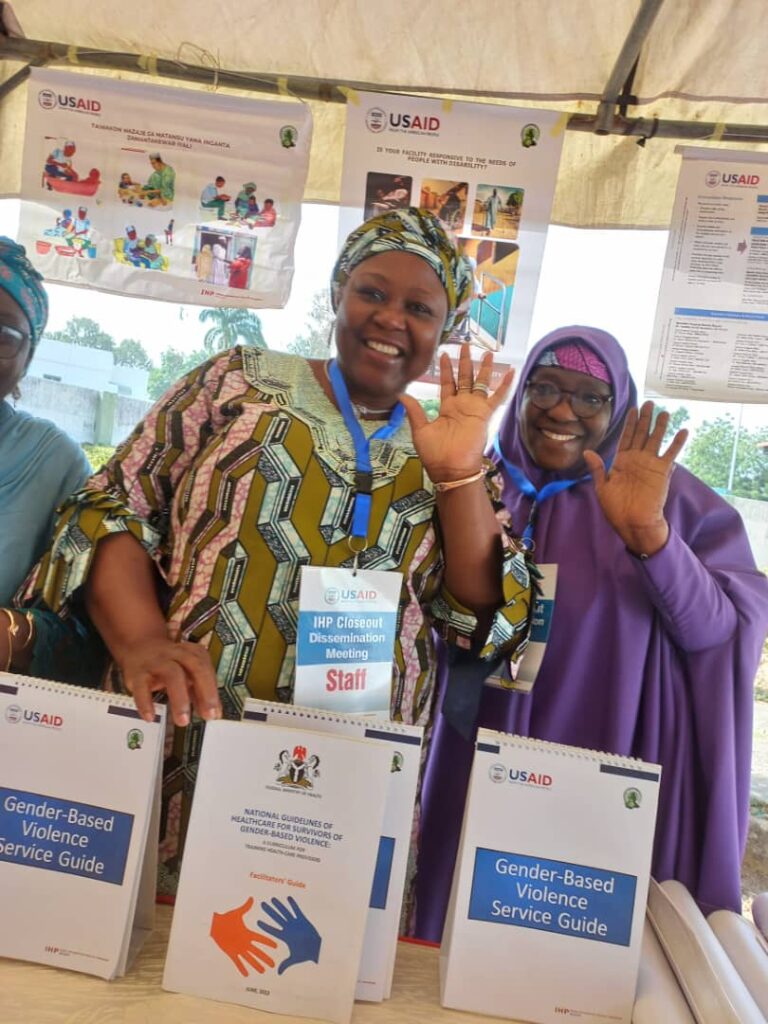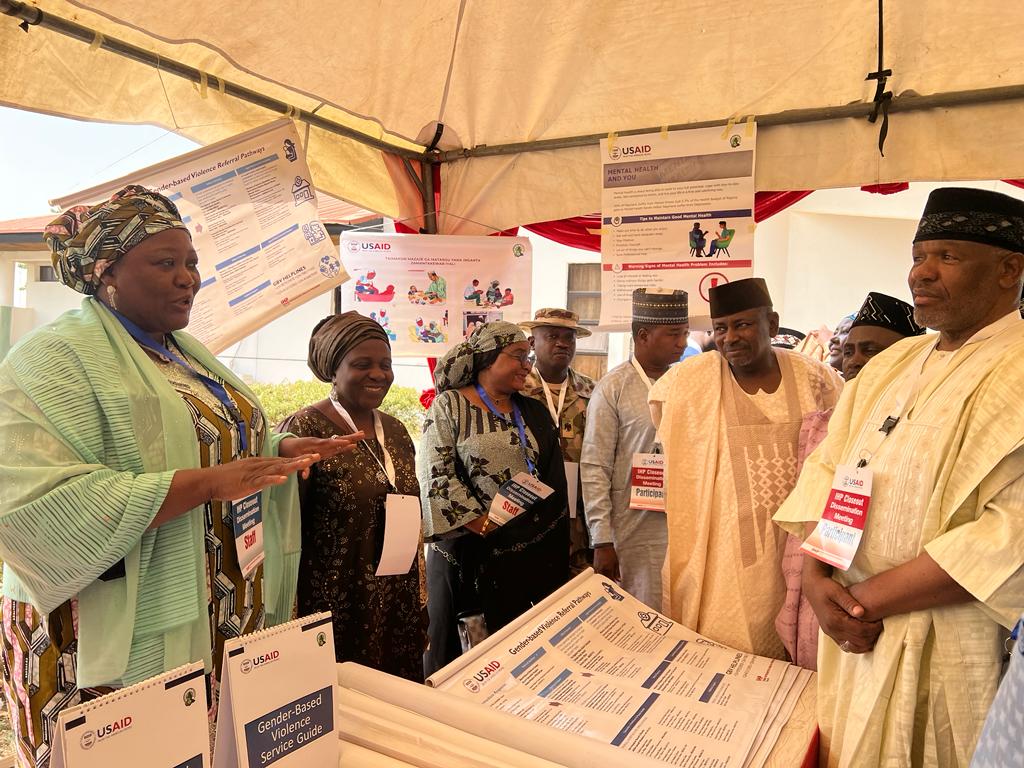A Gender Equity and Social Inclusion Advisor’s Thoughts on International Women’s Day 2024: Reflections on USAID IHP Nigeria
By Helen John, WI-HER Gender Equity and Social Inclusion (GESI) Advisor

Today, we commemorate International Women’s Day (IWD), a day when the world celebrates women and girls and raises awareness about our collective resolve to achieve gender equity.
Regardless of where they live – in the Northern Hemisphere or Southern Hemisphere, in a wealthy home or facing poverty – women have always played vital roles in their families and communities. Women often labor in both unpaid roles, such as domestically, alongside paid work. Despite their socio-economic contributions, women are still more likely to experience poverty than men. According to UNDP, this is often due to deeply entrenched societal and cultural biases at the local, micro levels and macro levels (e.g., policy and laws).
In Nigeria, for example, gender equity-focused projects have often experienced pushback from governments or stakeholders due to a limited understanding and misconceptions of what gender equity actually is. For instance, a law meant to protect women’s and girls’ rights and ensure equal opportunities between men and women, the Gender and Equal Opportunities (GEO) Bill, has been rejected multiple times by the male-dominated senate, which questions its usefulness.
At different points in my career, I have had the privilege of working with women-led organizations and leading efforts to enable women and girls to reach their full potential. I have seen how women, when given the tools and resources they need, have risen to become leaders in their fields and communities. I have realized that a great and prosperous nation is one that sees the necessity of investing in women and girls, as this has a multiplier effect in all sectors, including education, health, and the economy. This brings to life the words of Desmond Tutu: “If we are going to see real development in the world, then our best investment is WOMEN!”
As a gender equity and social inclusion advocate, I join other advocates and the rest of the world to celebrate IWD 2024 with the theme “Invest in Women: Accelerate Progress.” As I ponder this year’s theme, I consider: how do we truly invest in women and girls to accelerate the achievement of SDG 5?
It is important to recognize that gender equity cannot be achieved when strategies to correct the historical imbalance are gender-blind or gender-neutral. Any effort we put in place must be deliberate in overturning the inequalities that hold women and girls back. I recommend the following strategies based on my work and experience:

- The local community: The appropriate place to begin the discussion around investing in women and girls is in the local community. This is where socialization starts, which shapes people’s perspectives and behavior later in life. The family and community can serve as a platform where values, that are free of discrimination, biases, and prejudice, are passed along.
- Policy: Work towards proper enactment and implementation of appropriate laws, like the Gender and Equal Opportunities Bill and the Violence Against Persons Prohibition (VAPP) law, are essential to maximizing women’s full potential and granting them access to the power necessary to be changemakers in the development of their communities and countries.
- Development programs: Governments, development partners, and individual stakeholders must be deliberate in creating vocational and entrepreneurial skills development and capacity-building opportunities for women, including livelihood programs to provide employment opportunities. Forming self-help groups and teaching the Village Savings & Loans Association (VSLA) methodology, especially in low-income countries like Nigeria, can create financial access and inclusion for vulnerable women and girls and reduce poverty.
- Gender-responsive Budgeting (GRB) must be the norm. A gender-responsive budget is a budget for all because it considers the concerns of men, women, boys, and girls, ensuring marginalized and vulnerable people are included.
- Male engagement: Investing in women also requires engaging men, who often dominate the decision-making space. Men must be seen as allies in the discussion of investing in women and girls for a more equitable community.
As we commemorate IWD 2024, we must remember that gender equity remains one of the most pressing human rights challenges. Investing in women is imperative to build inclusive societies, and progress for women benefits us all. Let’s collectively invest today in women and girls to transform our global society towards greater prosperity.